‘It always lives in my mind’: Author Mia Odeh speaks on catharsis, love and finding light in the dark
How one woman found the courage to bring attention to centuries of culturally-encouraged misogyny.
Mia Odeh, age 45, speaks about her experience writing her memoir. November 1, 2022.
When Mia Odeh, at the tender age of sixteen, was forced into marriage with an abusive 35-year-old man in her childhood home in Palestine and then was made to move to the United States, it appeared to everyone — including herself — that this was the metaphorical death sentence to her freedom. Odeh arrived in a land foreign to her — Arizona — with no knowledge of English, no souvenirs from her homeland and no one to turn to for support. The circumstances forced Odeh to learn quickly how to become self-reliant, doing whatever she could to lead some semblance of a normal life for her and her children, despite the horrors of domestic abuse.
In her memoir “Mia’s Odyssey: Taking Back My Soul,” Odeh describes how she found a way to pick up the missing pieces and make herself whole again, despite much of her life being consistently characterized by discouragement and neglect.
After turning her story into an award-winning memoir, receiving prizes such as the International Impact Book Award and the Firebird Book Award, Odeh agreed to do an interview with me, during which we discussed her writing process and her background.
Answers have been lightly edited for clarity.
Kundargi: How would you describe your physical state while you were writing your memoir?
Odeh: It was really exhausting. When you experience something like what I did, you push the pain to the back of your head — over time the pain gets a little bit less, but it will never go away, and writing brings all that back to the surface. It’s emotionally exhausting, and it really affected my body. By the time I was done, I felt like I just wanted to be awake.
[The experiences] always live in your mind, like a person that never leaves. That’s one of the things that I wish I could change a little bit — my mind is kind of [focused on it] a lot. Almost for a majority of the time, I still can see and remember what happened — it does not stop.
Kundargi: How did you decide that you wanted to write your story? How did you decide to have a co-writer?
Odeh: Even when I was younger, I was one of the people that would sit and just write by myself, but not to the extent that I obviously do now. I needed a co-writer’s assistance to help people understand my thoughts, since English is my second language.
When I write by myself, it’s up to me. I would not be able to put proper words together and express my feelings to deliver the message clearly for everybody to understand what I’m saying. While I was writing [the book], I felt angry and upset. I was putting all my feelings on paper, and I probably would not have been able to deliver properly without a co-writer.
My co-writer and I hung out quite often on Zoom to work on the book during the [COVID-19] pandemic. I don’t know much about [Mike Ball’s] personal life, but I know that he’s a very compassionate and thoughtful person, considering that he deals with girls that are going through a really hard time — girls that have been sex trafficked since they were little — and his work helps them try to kind of get to a certain level where they might be ready to go out and hopefully be safe and ready to face the world.
If I write another book, it would definitely be with him.
Kundargi: Do you have plans to write another book about your experience?
Odeh: I got told that I should. Maybe a little bit later, at a later level of life.
Kundargi: How do you feel that writing the memoir changed the way that you parent?
Odeh: I’m not sure if it really changed anything. I’ve always given my kids freedom — we’re all survivors who had once been in one cell under the same kind of punishment, and we’ve all witnessed each other cry. But at the same time we’re friends, and it wasn’t like that before I came here. We’ve always laughed and joked with each other, but they also know what I expect from them and how to deal with basic stuff.
Kundargi: Do you have any advice when it comes to parenting for other parents who may have read your book?
Odeh: What really worked for me is not being harsh on my kids because I know some parents who overdo it. I never had to worry about my kids going astray, and if they’re home a little bit later than what they said, I’m okay with that as long as they’re safe. They know what I expect when it comes to school.
I mean, obviously everybody [parents in] their own way, based on what works for them.
Kundargi: From a teenager, what sort of advice would you have for teenagers trying to build relationships with other people — how do you think teens should be more empathetic to people who might have had bad experiences?
Odeh: The first I will say is that nobody should judge anyone just because they’re different. I know that I couldn’t dress like them, so I got picked on a little bit more. I didn’t really adapt [to my environment] — everyone clearly could tell that I was not from here. Don’t judge people and just accept them for who they are. If they’re not like everyone else you don’t need to stoop to a mindset that requires you to judge. I just think that everyone should try to be a nice person and respectable.
In my kind of work, I went to a church just down the road from here in Canton, and the people that I worked with knew my situation and my history, so we started donating money to shelters, churches and stuff like that.
I walked in, and the lady kept shutting me down. The way she was talking to me was really rude — hurtful. And one day, she says, “You can just go; we don’t need your money.” Everybody, no matter where they come from, should be treated kindly.
Kundargi: So now that the book is published, what would you say about how people have received it so far?
Odeh: I think it went really well. In the three months that the book has been out, I have won nine national or international awards.
The thing is, there’s really nothing particularly unique about my story. I guess that where I come from, it’s more out in the open and socially acceptable for women to go through that sort of experience. For example, you could have bruises and be visibly hurt, and nobody really sees it for what it is. When I lived back overseas, the neighbors would know what was going on and that I was getting hurt and not do anything.
Except here [in the United States] there’s a lot that people can do if they find out [about domestic abuse]. To any woman that’s going through that kind of situation, I want to say that I know it’s scary to take the first step, but it really will be worth it.
Kundargi: I know that misogyny is a really huge issue [in the Middle East], especially since it’s rooted culturally. Do you believe that there’s anything that can be done about it?
Odeh: In some areas, I don’t know how they’re ever going to change their mindset. All those guys have that same kind of mentality, and then they raise their kids to have it too. It’s so common to push the women in the back and put the sons in the front seat as though women are undeserving and bring shame, even though they do so much.
If a woman disagrees with the culture, what is she going to do? Where is she going to go? In some areas, it’s still really bad, and in all the others people still have no respect for women. I’ve seen men walk in front of their wives because they don’t feel that their wives deserve to stand next to them, even though husbands and wives are supposed to be next to each other, facing life together. I don’t know how it’s ever going to be changed if people keep refusing to break the cycle.
Kundargi: Do you feel that they back it up by misinterpreting religion?
Odeh: In religion, we all believe in higher powers and stuff like that. I don’t think that when God created the man and the woman he said to be absolutely awful to the woman. God is merciful, and he created the woman, so why should anyone say that the woman doesn’t deserve to be happy? Men need women and women need men — they need to live in harmony.
Men cannot tell their wives to please them or give them kids or cook for them blindly — my ex-husband told me that he didn’t marry me for love, and when he asked me for kids it was not because he truly wanted one. To prove it, when I left [him], he never tried to check on [the kids] — if he cared about them, he would have tried to stay in contact with them. But since we left, there has not been even a single phone call. It hadn’t affected him — if it really bothered him and he wanted to be a better person, or he is someone who had a heart in him, he would have connected with his kids.
Kundargi: For the record, I think you’re a very good parent. Back to the memoir, though, I thought that the way you described your ex-husband, your dad, and the rest of your family was so visceral that I could easily imagine their personalities. Is there anything else you want to talk about when it comes to your family back in your homeland?
Odeh: I just think that in my family, when they arranged a marriage for me, they didn’t really consider my views or my opinions, nor did they check with me. They knew their daughters weren’t okay, and they also knew that their daughters weren’t able to ever fight back. It doesn’t matter how badly a woman is treated since she’s always been taught to just accept it, even though a woman’s family and husband are supposed to treat her well and respect her.
I just wished for a man that loved me or respected me, and that I would be able to look forward to him coming home instead of praying to God that he doesn’t make it.
Kundargi: I vividly remember reading the moment in your memoir when you spoke about your mother taking away your dinner to give to one of your brothers, and, for me, it felt like a shocking moment of clarity. Do you believe your mother treated you the way she did because of a similar experience, or do you believe she simply existed cruelly?
Odeh: That was a really rough moment, for some odd reason. A lot of the situations [depicted in the book] are, but they happen to you in small instances. I remember when she took my plate from me because I had more meat on mine, and she didn’t want my brother to have to get his own.
I never understood why she was that way; maybe [it was] because of the culture in my homeland. But I once had somebody tell me that you can always fight. It doesn’t look like she’ll ever [go back] as a person to change her actions. I was never really ever able to connect with my family back then, so when I started talking to my sister and we started putting moments back together, she told me about how all those years [my mother] had targeted me.
I think it’s upsetting that when I sit and think as an adult, I cannot recall one time that my mother said she loved me. You can still always raise them with values that you believe in, but just be fair with your kids in the house. It’s your family and it’s your home so do it your way, and still have the values that you believe will raise your kids well. I really do think that it could have been done that way. But in my home, there was absolutely no equality.
Kundargi: Any last words for your readers?
Odeh: It does not matter where you come from, what culture you are and what you believe in religion-wise: we are all human. I believe women are very strong — just don’t give up. Don’t let them keep you down. Break the cycle.
Your donation will support the student journalists of Salem High School - MI. Your contribution will allow us to purchase equipment and cover our annual website hosting costs.

Nidhi Kundargi is currently a senior at Plymouth High School who joined The Perspective in fall 2022. She is the President of the Model United Nations...


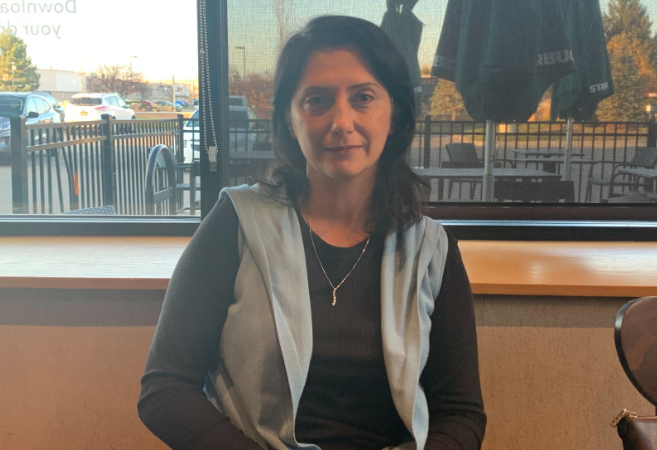
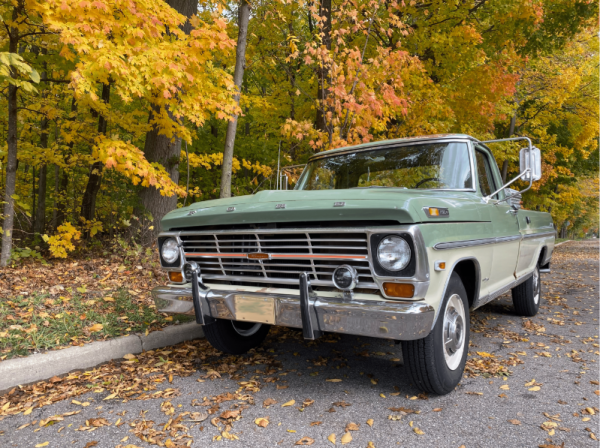
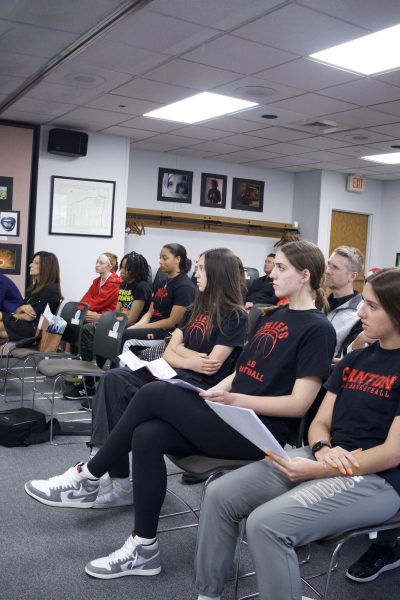
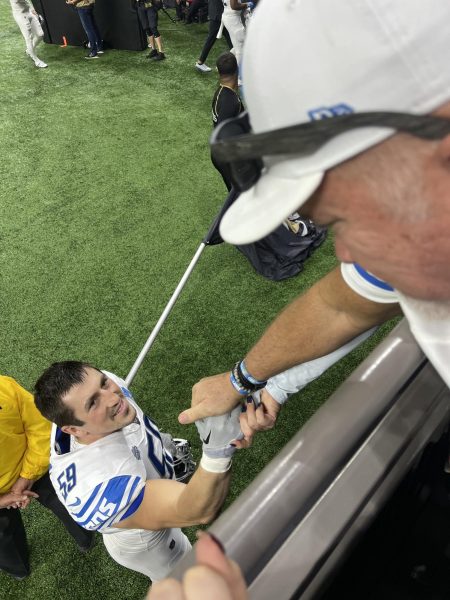

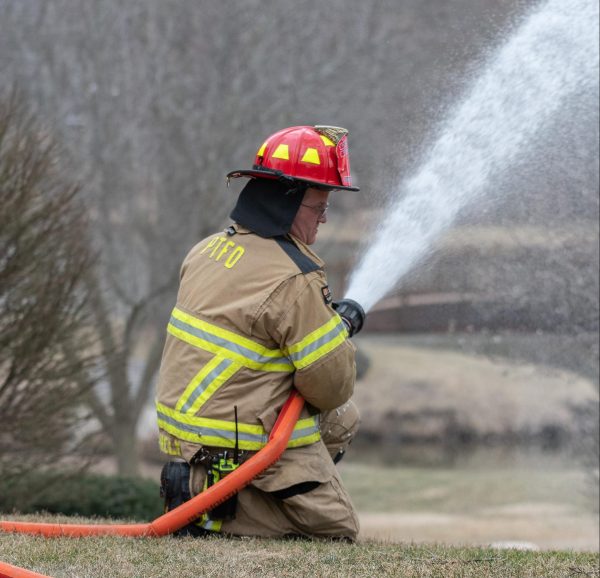

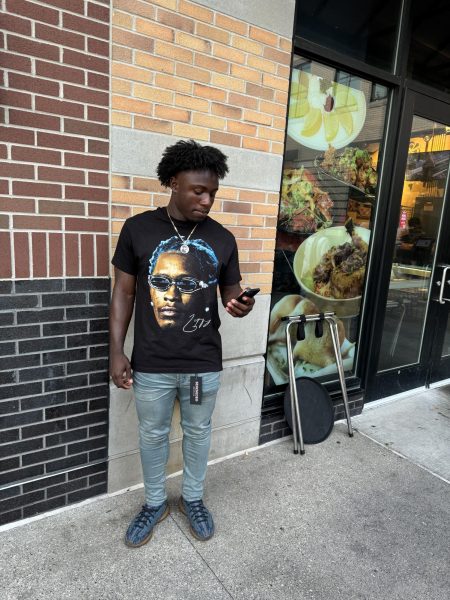
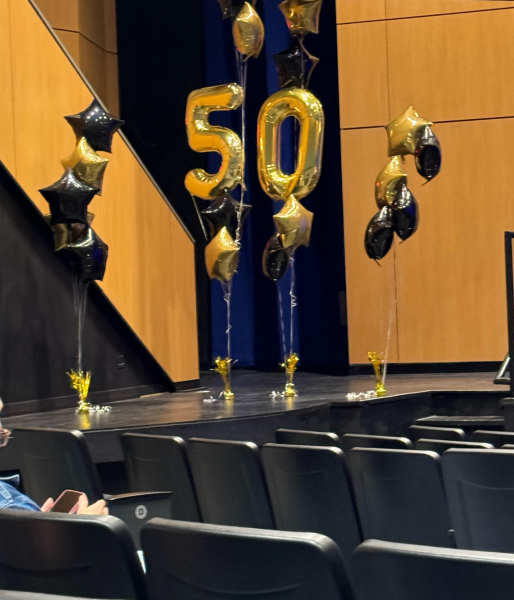
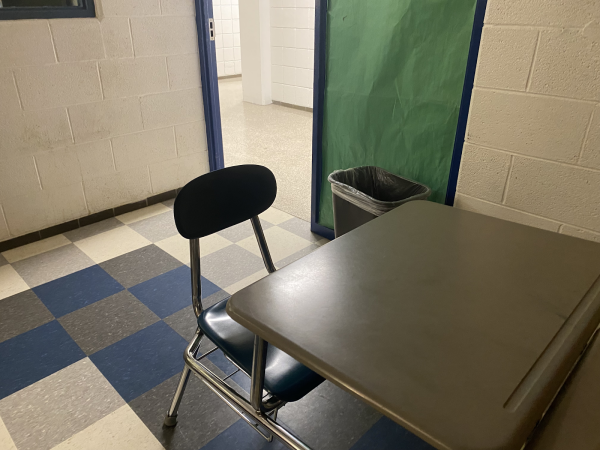


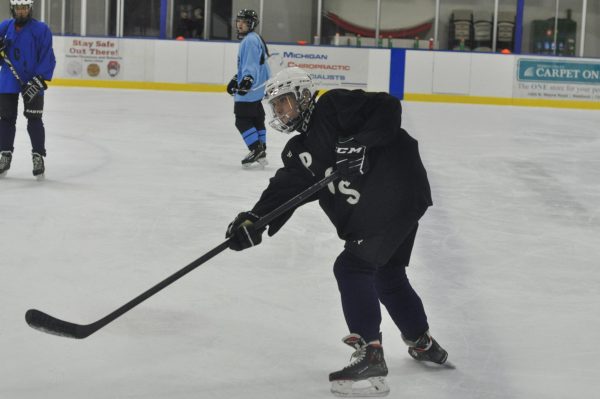
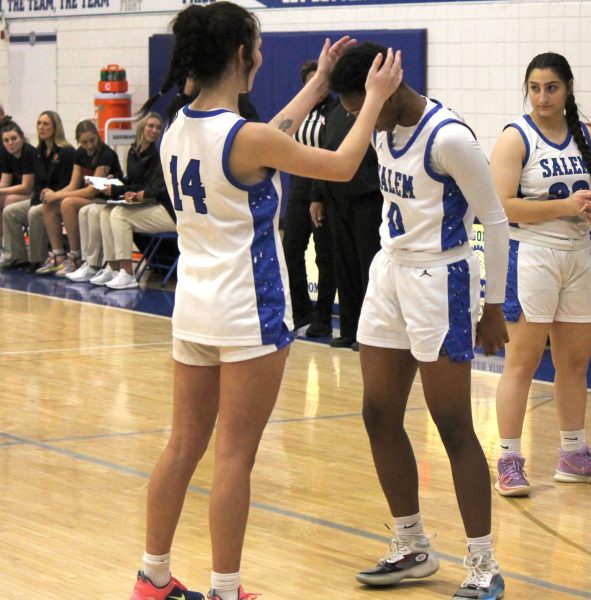
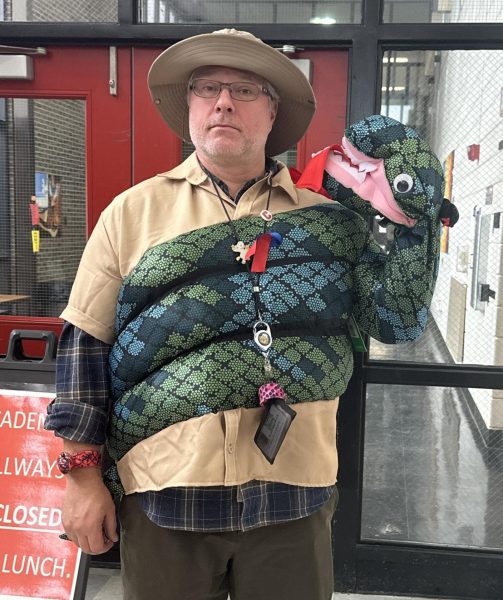
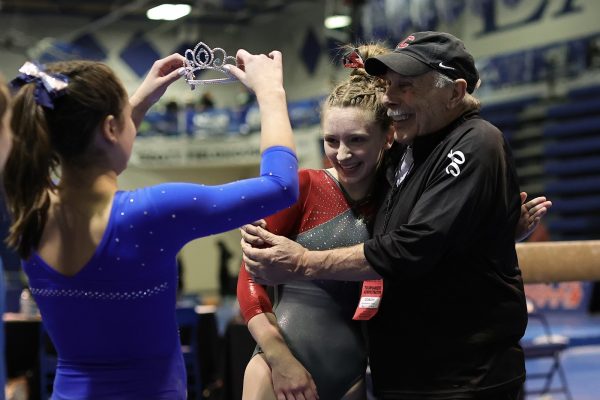
Don Soenen • Nov 25, 2022 at 5:43 pm
This is an awesome book and an excellent summary. Well done. A mst read